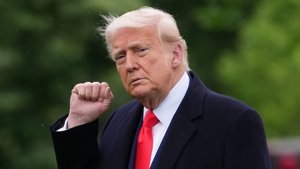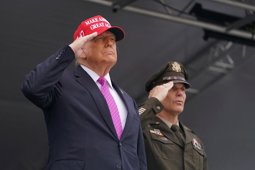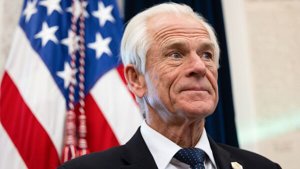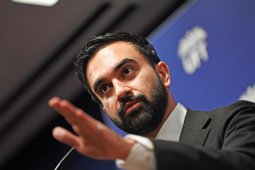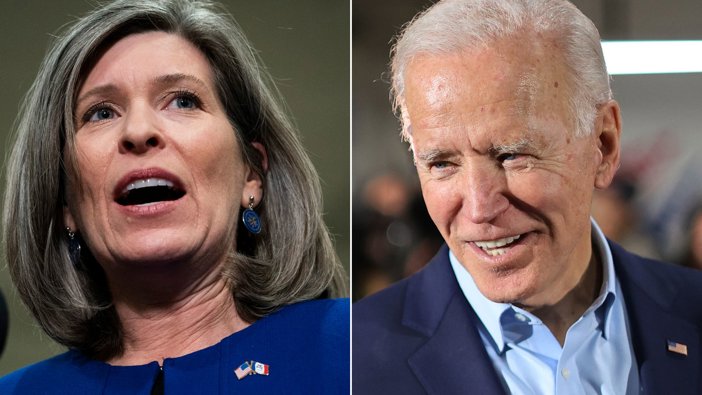
Embassy Pool Renovations Spur Criticism Over Biden Spending
Sen. Ernst condemns Biden administration for spending over $1.2 million on embassy pool renovations, as the Trump team vows reform.
Taxpayer-Funded Pool Upgrades Draw Political Fire
The Biden administration is facing mounting criticism from lawmakers and watchdogs following revelations that the State Department spent more than $1.2 million in taxpayer dollars on swimming pool renovations at U.S. embassies and diplomatic residences in several countries, including conflict zones. The findings, released by Senator Joni Ernst’s office, have reignited debates about government spending priorities and the need for stricter oversight of federal expenditures abroad.
According to Senator Ernst, R-Iowa, the State Department authorized contracts for swimming pool upgrades at American diplomatic sites in Haiti, Iraq, Sudan, Russia, Zimbabwe, Ghana, and Indonesia. The reported expenses included $444,000 to replace an indoor dehumidification system for the pool at the U.S. embassy in Baghdad and $41,259 for rehabilitating the pool at the Moscow embassy, with the latter contract signed just months after Russia’s invasion of Ukraine. Additional projects ranged from mechanical repairs in Erbil, Iraq, to a $24,000 pool deck installation in Sudan, a country currently under a ‘do not travel’ advisory due to civil unrest and violence.
Senator Ernst denounced the expenditures, stating, “The Biden State Department threw a blowout summer pool party on your dime. Bureaucrats might think wasting millions is a drop in the bucket, but I am sick and tired of taxpayers getting tossed in the deep end by Washington.” Ernst added, “I will continue working with the Trump administration to put a stop to the splashy spending of the Biden years.”
The report also noted a $173,000 award for a pool project at the embassy in Jakarta, Indonesia, with some contracts yet to be fully paid. Funding for U.S. embassies is typically drawn from congressional appropriations to the Department of State, a process that has attracted past criticism for costly art installations and amenities at diplomatic sites.
Scrutiny of Spending and Calls for Reform
This latest scrutiny comes on the heels of efforts by the Department of Government Efficiency, which reports saving billions for the federal government through audits targeting waste, mismanagement, and corruption across agencies. Senator Ernst’s office has emphasized the importance of ensuring taxpayer dollars serve core national interests, rather than unnecessary or extravagant amenities at foreign posts.
In response, Secretary of State Marco Rubio, who has been leading efforts to reform the State Department, recently announced the closure of USAID. He cited failures to align its programs with U.S. interests and declared that foreign assistance will henceforth be administered solely by the State Department under stricter oversight and more defined strategic goals.
Rubio commented, “This era of government-sanctioned inefficiency has officially come to an end. Under the Trump administration, we will finally have a foreign funding mission in America that prioritizes our national interests. As of July 1st, USAID will officially cease to implement foreign assistance. Foreign assistance programs that align with administration policies – and which advance American interests – will be administered by the State Department, where they will be delivered with more accountability, strategy, and efficiency.”
Past spending under previous administrations—including costly artwork and other embassy upgrades—has fueled bipartisan demands for greater fiscal discipline. Ernst and like-minded lawmakers insist that every federal dollar should be justified, especially as the nation faces ongoing economic and security challenges at home and abroad.
State Department officials maintain that many embassy projects are necessary for maintaining secure and functional diplomatic facilities, arguing that appropriations undergo a rigorous approval process. Nevertheless, the political fallout from high-profile spending—particularly in countries experiencing war or instability—continues to spark public and congressional scrutiny.
With the Trump administration vowing to curtail what it describes as ‘splashy’ spending abroad and lawmakers pressing for transparency, the debate over foreign funding and government efficiency is poised to remain a central topic in Washington. Further investigations and oversight measures are expected as both Congress and the executive branch seek to balance America’s global diplomatic presence with a renewed focus on fiscal responsibility.


